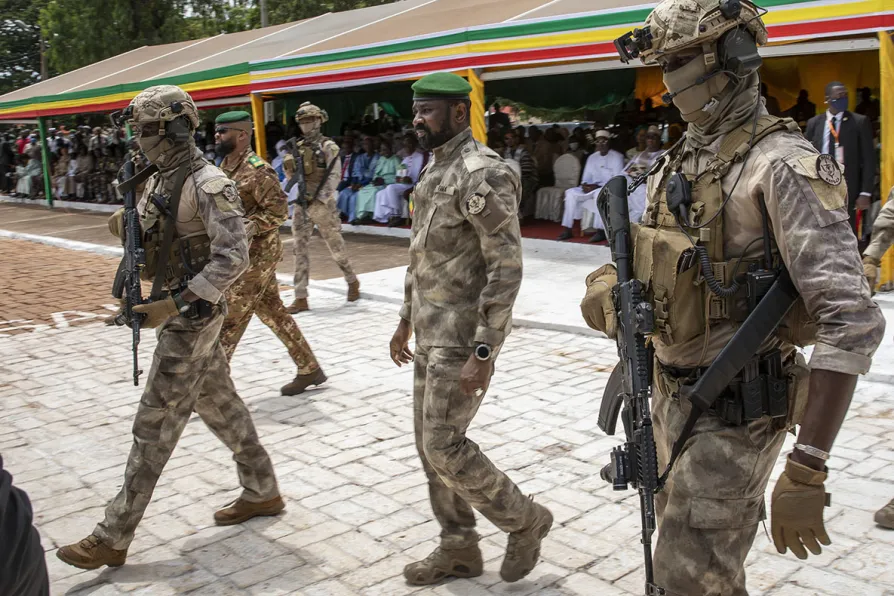Error message
An error occurred while searching, try again later.
 Leader of Mali's ruling junta Lt. Col. Assimi Goita (centre) attends an independence day military parade in Bamako, Mali on September 22, 2022
Leader of Mali's ruling junta Lt. Col. Assimi Goita (centre) attends an independence day military parade in Bamako, Mali on September 22, 2022
MALI is facing a deepening crisis as jihadi militants impose a blockade on fuel imports, strangling the landlocked west African nation’s already fragile economy.
Education Minister Amadou Sy Savane announced late on Sunday that all schools will close for two weeks due to severe fuel shortages, preventing staff from travelling to work.
The shortage has disrupted most sectors and caused long queues at petrol stations in the capital, Bamako.
For a country that relies on fuel imports from Senegal and Ivory Coast, the blockade marks a major setback for Mali’s military junta, which seized power in 2020, vowing to restore security.
The al-Qaida-linked Jama’at Nusrat al-Islam wal-Muslimin (JNIM) group announced the blockade in early September, saying it was in retaliation to government efforts to cut fuel supplies to rural areas used as militant hideouts.
Hundreds of trucks are stranded at Mali’s borders.
The blockade has sent prices soaring, worsening living conditions for millions in a country where nearly half the population already lives below the poverty line.
Mali, Burkina Faso and Niger — which all expelled French forces after military coups and turned to Russian support — have seen violence escalate despite closer co-operation and air strikes on militant positions.
According to the Armed Conflict Location & Event Data Project, this year’s attacks in Mali are among the deadliest in more than three years, with JNIM deliberately seeking to destabilise the governments across the Sahel.
In Bamako, residents queue overnight for scarce fuel while the army attempts to escort convoys through militant-held zones.
Some trucks have reached the capital, but others have been attacked en route, underscoring the junta’s struggle to contain a crisis that now threatens the country’s stability.










